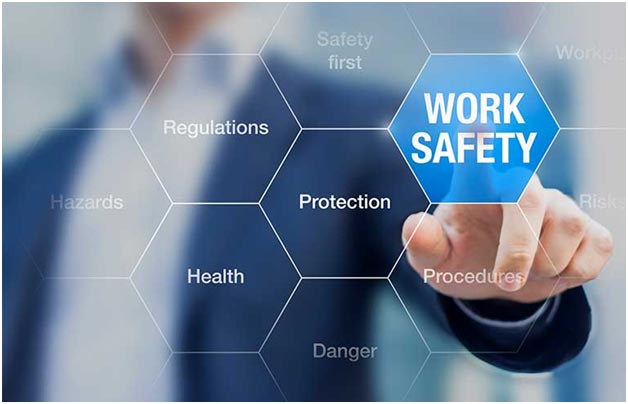Why Safety Needs to Get Personal
I guess you could say I'm a bit of a policy nerd. I do, after all, cherish a free travel mug I received from the U.S. Census Bureau ahead of the 2010 census; the bureau ranks as one of my Top 5 favorite federal government offices. So, it was with this same enthusiasm that I attended an early morning session at the ASSP's Safety22 Conference and Expo this past June in Chicago.
The reason? Assistant Secretary of Labor Doug Parker would be having a discussion with Blaine Krage, ASSP’s senior media relations specialist. Krage did a fabulous job asking Parker a wide range of questions, and I appreciated the opportunity to hear from the head of the Occupational Safety and Health Administration (OSHA).
Parker talked about how the agency is still working to extend the Emergency Temporary Standard for healthcare. Once that’s done, OSHA will finish drafting a comprehensive infectious diseases standard, a playbook OSHA and employers can refer to in the event of another infectious virus or even regional outbreaks of tuberculosis and measles.
OSHA is continuing to focus on heat-related hazards as part of the National Emphasis Program it announced earlier this year. They’re also looking at taking action to help reduce workplace violence, particularly in health care settings. And so many more initiatives than I can possibly mention.
I took dutiful notes about the forthcoming policies and standards, but it was something else Parker said that caught my attention.
He said, “It’s important that we respond to the needs of our workers. One of the ways we do that is to relate back to the personal. What are the things that are most important to us? The health and safety of our families, our kids.
“What we do as an organization is not just compliance. We’re keeping families together. We’re keeping people healthy enough that they can play with their grandkids and not drag around an oxygen tank.”
That’s the thing I’ve learned after nearly two years covering this industry. Most safety professionals have a safety story of their own. Perhaps it was a workplace accident, injury or near miss from a family member, such as a dad or an uncle. Or maybe it’s an accident, injury or near miss that has changed your life forever.
You’re not in this field for the money, as the answers to our 2022 National Safety & Salary Survey show. You’re in it to make a difference. Safety is a calling to you, much in the same way as physicians talk about medicine and teachers talk about education.
As an outsider, someone who watches and reports from the sidelines, it seems like getting personal is something the safety profession can—and should—tap into more often. Think about how Paul O’Neill had Alcoa develop a real-time safety reporting system that included the employees’ names to reinforce that there’s a person, a colleague, a friend, behind that number in the injury column.
I know you’re drowning in work and don’t need someone telling you something else to do, so instead I'll just remind you of something from Nora Ephron’s “You’ve Got Mail.”
During the turning point in the movie, Joe Fox (Tom Hanks) tells Kathleen Kelly (Meg Ryan) that driving her independent children’s bookstore out of business wasn’t personal; it was just business.
Kathleen’s response is so astute and goes far beyond the scope of a (very good) rom-com. She says, “What is that supposed to mean? I’m so sick of that. All that it means is it wasn’t personal to you. But it was personal to me. It’s personal to a lot of people. What is so wrong with being personal, anyway? Because whatever else anything is, it ought to begin by being personal.”
Indeed, only when something—especially a business objective or government requirement—becomes personal is when things can really change for the better.



